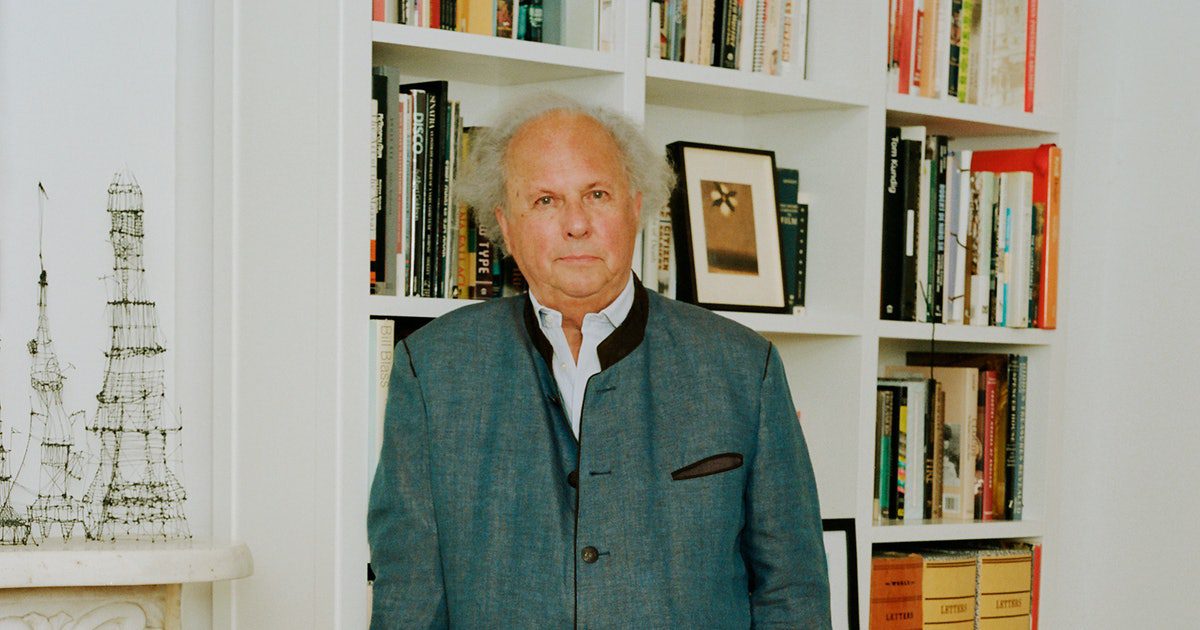For our annual “The Originals” issue, we asked creatives—pioneers in the fields of art, design, fashion, comedy, activism, and more—to share their insights on staying true to themselves. Read all of this year’s interviews here.
You got into the newsletter game early with “Air Mail,” the weekly dispatch you started after leaving Vanity Fair. Now it seems like in the past year, every writer has their own Substack. How do you feel about the state of the media industry right now, in particular as it pertains to what’s landing directly in your inbox?
When I first came to New York, if you wanted to get something published, you needed to go to somebody who had the means of production, whether that was a book publishing company or a magazine publishing company or a newspaper. Now, everybody has access to the means of production. The hard part is standing out so that the world will come to you.
Do you think that it’s easier now for very talented people than it used to be?
My oldest son, who is a writer and editor, said the other day that being an opinion columnist used to be the crowning achievement of somebody’s journalistic career, and now it’s the entry-level job: just sitting there in your bedroom, spewing opinions about things, some of which you probably know a lot about and some of which you probably don’t know that much about.
What do you think the future of the magazine business looks like?
I don’t think magazines are going to go the way of VHS tapes. I think they may go the way of vinyl, in the sense that young people love magazines. They’re beautiful artifacts, and if they’re really put together well, with high production values, people love having them, reading them, looking through them, and keeping them.
You’ve written introductions for three books published this year: Tom Ford’s latest tome, a special publication Netflix put together about The Crown, and a book on the Hôtel du Cap-Eden-Roc. What was it like working on those? I imagine you must have mentioned the Vanity Fair parties you held at the Hôtel du Cap during the Cannes Film Festival.
I did. Matter of fact, I said that they were so wonderful and so glamorous that if I hadn’t been the host, I never would have gotten invited.
What did you miss most during the pandemic?
I missed restaurants. Restaurants are the absolute lifeblood of a city or town. A restaurant is where you go to fall in love. It’s where you go to break up. It’s where you go to celebrate.
What is the most prized possession in your closet?
About eight years ago, my family and I were in Munich, and I bought an Austrian jacket. Now I have about five of them, in linen and in wool. I find them just so forgiving, and there’s something sort of crisp about them. I like all the buttons. And it covers the effects of a lifetime of eating out at restaurants.
What does originality mean to you?
I was trying to explain to my youngest daughter the other day that there’s something attractive about somebody who is comfortable doing or wearing or being the person they are, rather than somebody who is putting on an affect the entire time. And it may take you longer to appreciate them and what they do, but once you do, it lasts longer. An original person, you can spot it. They’re just comfortable with being who they are.
What do you consider your most original quality?
I have no original qualities whatsoever, and that may be my originality—just my complete unoriginality-ness. I mean, I dress in a really boring way. I don’t cook particularly well. I like wine, but I don’t know anything about it. Love watching television, love reading. I’m the only one of my friends whose abiding hobby over the last 40 years has been canoeing. I love being in a canoe, and I’m good at it. I have six Old Town canoes, some over 100 years old.
You’ve spent much of the past four years in Provence. What do you think the French do better than the Americans?
They work a lot harder than we give them credit for. Renovations are much faster there than they are here. They obviously do food wonderfully, and, like the Italians, they do life well.
Where in the world, and doing what activity, are you happiest?
In a little town in southern Provence, drawing. I could draw for hours, listening to great jazz, and be completely satisfied by that.

